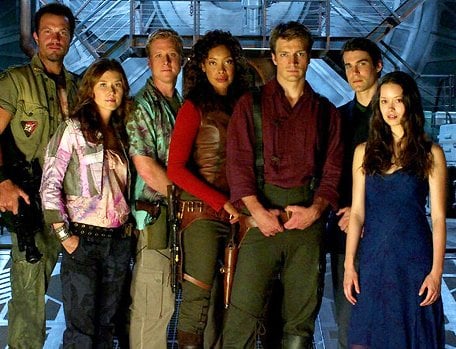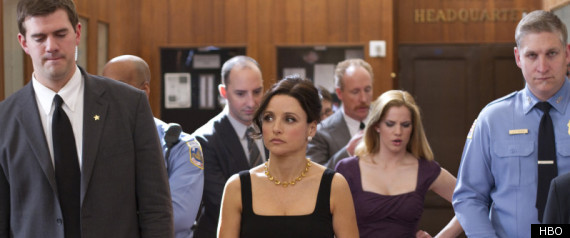Here's an overview of three hourlongs on Sunday. It's really too much to watch, much less write about.
Mad Men:
I really don't know what to make of
"Far Away Places." Good or bad, though, it reminded us that
Mad Men does stuff no one else even attempts.
This week we followed Peggy, Roger and Don and the troubles they have with relationships. Since Roger took LSD, the episode did some time-tripping of its own. Also, each story had two characters lying back and looking up, and had one being woken up and asking what time is it. They all left us wondering where these characters are going.
We start with Peggy. She's got the big Heinz re-pitch today and is fighting with her lover. She gets into work and just before the pitch Don informs her he and Megan are taking off upstate. Peggy feels a bit blindsided, but it's Don, who does what he wants, and no one can tell him otherwise.
The pitch doesn't go well--still not college-y enough. Peggy tries to pull a Don by telling the client he actually likes it, and only succeeds in getting herself fired from the account. (Peggy must be getting tired of Heinz because I'm already tired of it and she's been on it longer than I have.) She goes off in the middle of the day to watch a movie (her boyfriend had wanted to see
The Naked Prey but she checks out
Born Free).
At the cinema she borrows a joint from a patron. (Was New York that hip in '66?) He sits next to her and tries to put the moves on. She says no, but instead gives him a hand job. There's something you don't see too often. She returns to the office and meets Ginsberg's annoying Jewish father. She falls asleep and is woken by Dawn (not the dawn) and answers a call from Don about Megan. What's up with that? Guess we'll find out later. Peggy then finds out from Ginsberg that he was born in a concentration camp, which she has troubling processing. She realizes she needs some reassurance.
Roger is going to a party with Jane, though clearly they're unhappy. It's Jane's smart set, arguments about beauty and truth. And just when you think the party's about the end, someone announces it's time to turn on. This was the point of the party, but Roger didn't really pay attention.
Anyway, he's not the type to turn down an easy high, so he goes along with Jane and takes the sugar cube. As much as we love Roger, he's probably the one most in need of a personality change, and if anything can do it, it's LSD.
We have a calm but trippy sequence. (I thought playing some of
Pet Sounds was maybe a bit on the nose.) Roger and Jane get home, still under the influence, lie on their carpet and discuss what's going on. She admits she knows it's over but is waiting for him to say it. Next morning, he feels enlightened and is ready to leave. Jane isn't sure at first that they should listen to what they said while high, but it seems, now that it's out in the open, they both know it's going to happen. And it'll be costly, but the new Roger doesn't seem to mind.
Don's story has Roger suggesting they go on an upstate romp to meet the Howard Johnson's people, but instead Don takes Megan out of work (just before the Heinz pitch). She's moody and ultimately quite unhappy he undermined her at work and treats her like she's a wife rather than a worker. Especially when he starts thinking up work ideas once they get to the Howard Johnsons.
(Two unrelated points: 1) I don't usually get nostalgic for things on the show, but it doesn't seem that long ago that Howard Johnson's was simply a part of America, like McDonalds or Holiday Inn. What happened? 2) I once was driving from New York to Montreal, took a wrong turn, had my car break down and got stuck in Utica. It was actually a nice weekend.)
So Don and Megan have a big fight in HoJo's, and he walks out and drives off. He comes back but she's gone. (In-between we have an odd little flashback to when they're driving the kids back home after summer vacation, while Don whistles "I Want To Hold Your Hand," which has grown on him.) After a lot of worry and searching, he finds her back at their place. They get over it, but you wonder if their relationship will change. (I wouldn't mind. This more domesticated Don isn't as interesting.) Back at work, Bert tells Don it's time to get back to work for real. I guess someone
can talk to Don that way. (Robert Morse doesn't get that many lines, but he makes the ones he does get count.)
So another episode, where a lot happened and nothing happened. And one of the trippiest since Don took off with the Jet Set. No Betty, which is fine. No Joan or Harry, which is not so fine.
Game Of Thrones:
"Garden Of Bones" was a dark episode, but still a lot of fun.
We start with another surprise victory for Robb Stark, who's so noble he's almost as priggish and dull as Stannis. He meets another one of
GOT's strong women, Talisa, tending to the wounded. I thought last week maybe we'd met all the main characters for this season, but you never do on this show. She and Robb have a very modern conversation on the wisdom of war, and that's it for Robb this week. Nice to see you.
The despicable Joffrey is not happy with Stark's march. He has Sansa at court and plans to hurt her (it not--yet--kill her) when Tyrion comes in an stops the nonsense in his clever way (by noting the deficiences of his nephew without directly contradicting him or threatening him). Bronn suggest maybe the idiot-king needs something to take his mind off things, so Tyrion sends a couple of whores to his chamber. He has one hurt the other to fling it into Tyrion's face later.
Lord Baelish travels to Renly's camp. Renly is no fan of Littlefinger, of course, but that's nothing next to Cat, who believes (correctly) this is the man who betrayed her husband. He tries to explain there was nothing to be done, and if she's willing to be sensible, perhaps a trade can be arranged--Jaime for Sansa and Arya. (He's lying about Arya, but she doesn't know that.) He brought back the remains of Ned as a peace offering. Tyrion is behind this, as he's behind so much, but Baelish, who loves Cat but is also very subtle, is clearly the man for the job.
Out in the Red Waste, Dany hears good news--that the greatest city ever, Qarth, will let them in. Good to see her again. Meanwhile, Arya, Gendry and the rest are marched to the cursed Harrenhal. Every day the Mountain chooses some lucky lad to be tortured for information and then killed. (Arya tries to hide--he might recognize her.) And that's life at Harrenhal.
Stannis and Renly, with their seconds and thirds and so on, have a powwow. Doesn't go well, since Stanis will never yield (to be fair, he has to best claim to the throne) while Renly is more popular and has more soldiers. Too bad, since if they could work together, and join with Robb, they could easily take King's Landing.
At Qarth, Dany doesn't get quite the greeting she hoped for. The place is run by the head merchants, the Thirteen, and while they'd love to see her dragons, they're not that disposed to letting Dothraki in. (Which is why the land outside is called the Garden Of Bones.) Luckily, one of the merchants, who's a bit of an outsider himself, is willing to vouch for them. Wow, Dany and her small band will be able to raise her dragons. Watch out!
At Harrenhal Gendry is picked, but before he gets the treatment, no-nonsense Tywin rides in (a day early) and puts an end to such foolishness. They need bodies to fight, not to torture. He also easily sees Arya is a girl disguised as a boy. He takes her on as a cupbearer. Interesting.
Tyrion gets a warrent from Cersei to release Pycelle. Tyrion figures the Lannister messenger is Cersei's lover and so he controls him--let Pycelle out, he's now harmless, while Tyrion (who goes from strength to strength) now has a spy with the Queen Regent.
Stannis has Davos do some smuggling again, taking the Red Woman to his brother's side, where she lays down, pregnant, and deliver something spooky. (This is the fantasy part of the story which I find least interesting). Is Renly ready for this? Could anyone be?
So no Jon Snow, no Greyjoys, which are both fine with me. No Jaime or Cersei, though no doubt they'll be in play soon. Everyone is manevering around, but all eventually moving toward King's Landing (even at the Wall, I bet).
Once Upon A Time:
The show returned to new episodes, but now playing the same night as two really good shows, you see how weak it is.
We find out more from fairyland--that Rumpelstiltskin bailed on Bae, his son, who got a spell from the Blue Fairy to send them both to a land with no magic so dad would stop being so creepy. In Storybrooke, Gold searches out August and suspects it's his son. There's a tearful reunion, but soon after we discover August is a guy who's sick in the other world (he claims) so he wants Rumpel's power. Too bad you can't get it in this world.
However, we discover (in another one of countless silly twists) that that's why Rumpel got this curse going that the Evil Queen used--so he could get to the land where his son was sent. Meanwhile, Regina has Sidney falsely admit he's behind setting up the fake crime, and Charming and Snow (in the real world) continue to have boring relationship problems.
I guess things are changing a bit, but with a few more episode, I don't know if things are compelling enough to make me return.





















